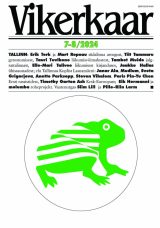The traditional schema of the western European Bildungsroman is subverted in postcolonial novels, where the protagonist, instead of becoming reconciled to the adult world, is caught in a state of adolescent uncertainty. Estonian literary critic Piret Peiker sees this pattern repeated in post-Soviet narratives; reading works by Witold Gombrowicz, Czeslaw Milosz, Milan Kundera, and Estonian author Emil Tode, she demonstrates how the Romantic ideal of “wholeness”, located in the western European metropolis, is undermined.
Piret Peiker
(b.1971) teaches at the Estonian Institute of Humanities at Tallinn University and is a doctorate student of comparative literature and cultural history at the University of Turku, Finland. Her current research is concerned with the discourses of modernity in Estonian literature.
